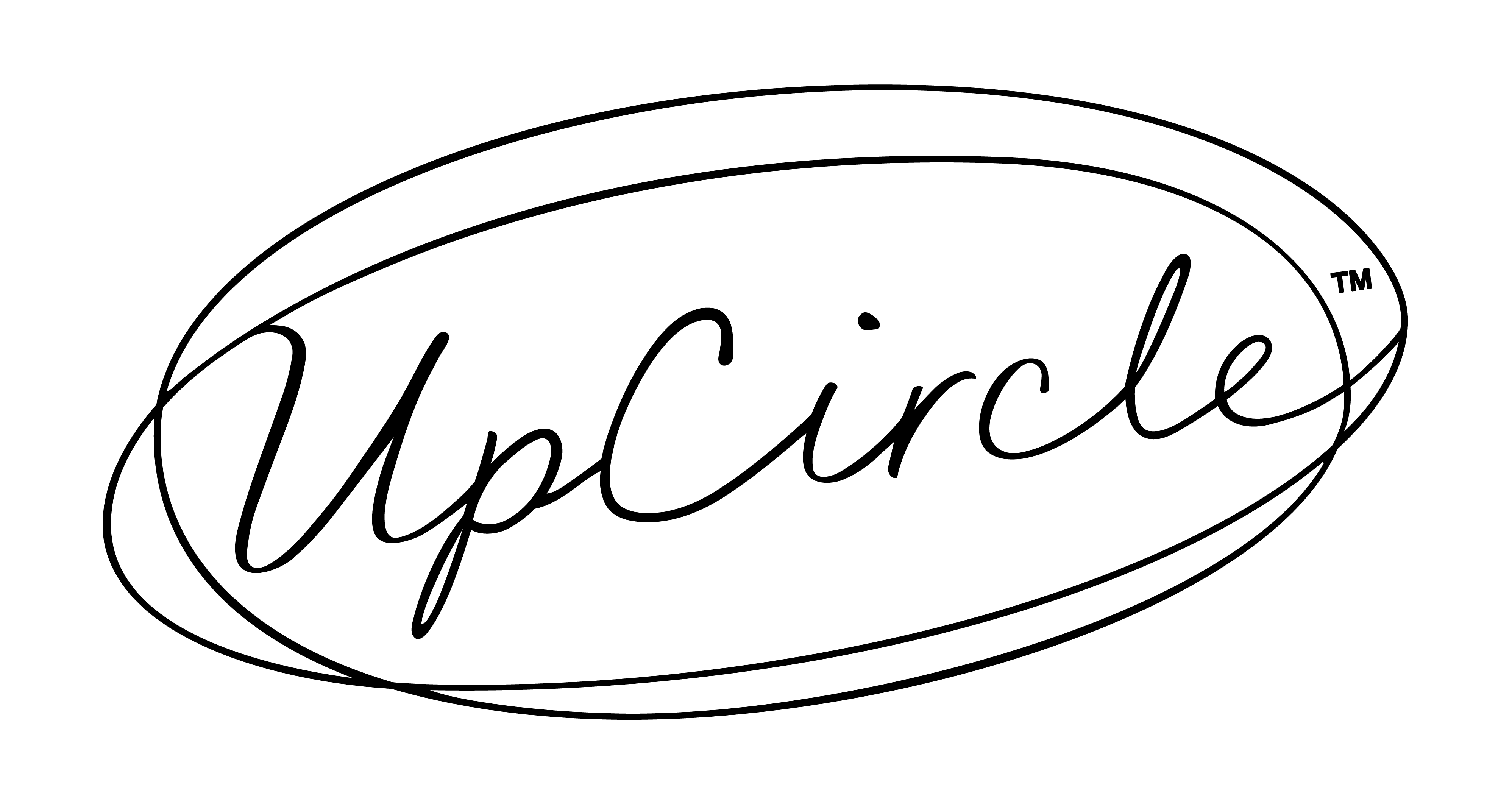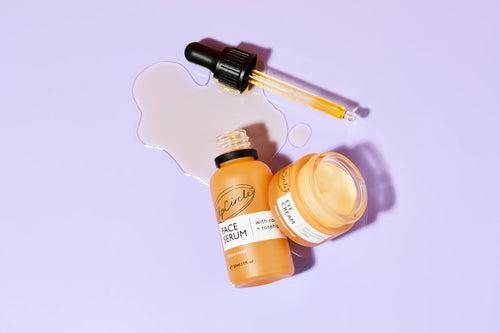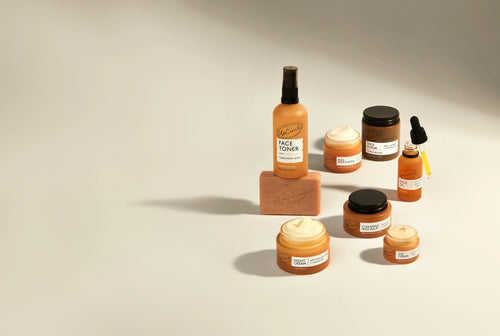Post-inflammatory hyperpigmentation is any dark marks and blemishes that remain visible on the skin after a spot or acne breakout. They are the body’s natural response to inflammation. It can leave you feeling exposed and like, even without active acne or an active breakout, your blemishes are still on show. It can certainly leave you feeling like you have no choice but to reach for the concealer, even if you’d rather go natural.
But why do these patches of pigmentation remain visible for so long after the spot heals – and what can you do to lessen the effect of dark blemishes?
One of the most common questions the UpCircle team gets asked is ‘how to get rid of post-inflammatory hyperpigmentation?’ We know it’s a frustrating problem.
Let’s take an in-depth look at how to prevent post-inflammatory hyperpigmentation and which products provide the best post-inflammatory hyperpigmentation treatments.
Post-inflammatory hyperpigmentation and acne scarring
These two conditions may seem similar, but there are some key differences. Acne scars are caused by damage to the tissues and veins, leading to pitting and scarring. Post-inflammatory hyperpigmentation doesn’t damage the follicles or cause pitting of the skin. It’s a short-term issue, albeit usually lasting several weeks or more.
We’re focusing on post-inflammatory hyperpigmentation in this article – but for more information on treating acne, read our article on how to achieve acne-free skin.
What does post-inflammatory hyperpigmentation look like?
Post-inflammatory hyperpigmentation is triggered when the body’s melanin production goes into overdrive following an inflammation (in this case, the small infection of the spot). Although the main culprits are acne and spots, other traumas to the skin – such as a burn or cut – can also be contributory factors.
The symptoms of post-inflammatory hyperpigmentation are flat patches of discolouration on the skin. These range in colour and tone from red to black, depending on the severity of the hyperpigmentation.
The condition affects both men and women and can develop in all skin types. Some skin types are more prone to this hyperpigmentation, and some simply show any blemish more readily. Research shows that post-inflammatory hyperpigmentation tends to be more severe in darker skin tones. Those with very pale skin may also feel the hyperpigmentation is more visible.
Is post-inflammatory hyperpigmentation permanent?
In mild to moderate cases, post-inflammatory hyperpigmentation is not permanent and the blemishes will fade over time – even if left untreated. In severe cases, it can take months and even years for the discolouration to fade and some traces can remain permanently.
To minimise the chance of any lasting damage from post-inflammatory hyperpigmentation, we advise taking preventative measures. These include wearing SPF50 sunscreen under your make-up and resisting the temptation to squeeze or pick any spots! Affected skin is more sensitive, hence the suggestion to pay particular attention to your sunscreen here.
The good news is that there are treatments and products available that can help to get rid of post-inflammatory hyperpigmentation fast in the majority of cases.
How to cure post-inflammatory hyperpigmentation
There are several beauty techniques and powerful ingredients that are well-worth searching out to help you treat post-inflammatory hyperpigmentation at home.
Know your vitamins!
Choose products that contain argan powder or oil, as these can reduce the body’s production of melanin which will help to minimise the effects of skin discolouration. Argan oil is also rich in Vitamin E, which gently lightens dark patches of skin on the face.
Vitamin C is another ingredient that can help to fade the blemishes caused by post-inflammatory hyperpigmentation. It boosts the production of collagen and is especially effective on sun-damaged areas of skin.
You should consume a Vitamin C rich diet (leafy greens and lots of berries!), but choosing skincare rich in Vitamin C ensures it goes directly where it is needed.
Fade blemishes faster with exfoliation
Speed up the time it takes for hyperpigmentation to fade by boosting your skin’s renewal rate with gentle exfoliation. The melanin pigment that causes dark marks will be exfoliated over time. Use an exfoliator such as our Coffee Face Scrub to buff away dead skin and help to reduce the appearance of post-inflammatory hyperpigmentation.
Liquorice root reduces dark spots
Liquorice root has anti-inflammatory properties, which makes it a great ingredient for irritated skin. It also contains a flavonoid called glabridin, which studies have shown helps to fade the pigment and improve the appearance of post-inflammatory hyperpigmentation.
The best post-inflammatory hyperpigmentation products
We’ve created our very special 'The Skin Soother Bundle' to provide a natural skincare routine for inflamed skin that includes the following feel good products:
- Face Mask with Olive Powder: Prevention is better than cure – and this clarifying face mask is designed to prevent breakouts, reduce pore size and fight blackheads which can lead to hyperpigmentation.
- Organic Face Serum with Coffee Oil: Our award-winning serum is rich in Vitamin C from sea buckthorn and rosehip oils to combat the redness caused by post-inflammatory hyperpigmentation.
- Face Moisturizer with Argan Powder: With skin-soothing cocoa butter and aloe vera, this moisturiser contains finely ground argan powder and is packed with Vitamin E.
- Night Cream with Hyaluronic Acid & Niacinamide: Formulated replenishing niacinamide to even skin tone and upcycled blueberry extract; a source, of pro-retinol that works to minimise the signs of ageing skin.
- Cleansing Face Milk with oat powder: An everyday gentle cleansing milk made from upcycled oat powder that restores and repairs the skin's moisture barrier.
- Face Toner with Mandarin and Chamomile: With anti-inflammatory properties from the residual water of green mandarins and cool, soothing chamomile, this balancing toner will brighten and moisturise skin.
Post-inflammatory hyperpigmentation is a common skin condition, which can be more severe in acne sufferers or anyone with a darker complexion. It can be frustrating, but it isn’t dangerous, and is something that can be managed more effectively. By following our skincare tips, you can reduce the appearance of post-inflammatory hyperpigmentation on your face and speed up the time it takes for dark blemishes to fade.







